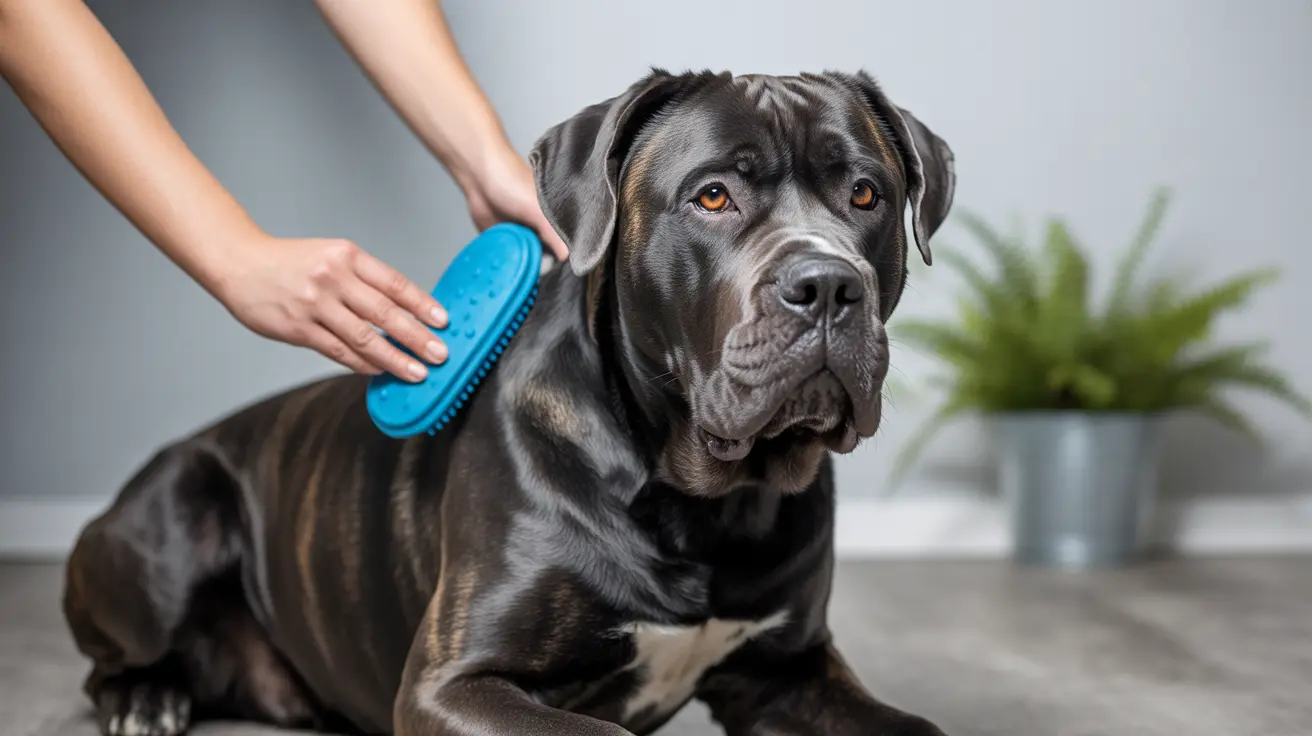If you're considering adding a Cane Corso to your family but have allergies, you'll want to understand exactly how this magnificent Italian breed might affect your health. Let's dive into the facts about Cane Corsos and their hypoallergenic status to help you make an informed decision.
The short answer is no - Cane Corsos are not hypoallergenic dogs. These powerful mastiffs produce various allergens through their dander, saliva, and urine, making them potentially challenging companions for allergy sufferers. However, understanding their shedding patterns and implementing proper management strategies can help some people successfully live with these loyal guardians.
Understanding Cane Corso Allergens
Like all dogs, Cane Corsos produce several types of allergens. The primary culprits are specific proteins found in their:
- Skin cells and dander
- Saliva
- Urine
- Hair follicles
These proteins, particularly Can f1 and Can f2, are what trigger allergic reactions in sensitive individuals. When a Cane Corso sheds or drools, these allergens can become airborne and settle on surfaces throughout your home.
Shedding Patterns and Coat Characteristics
Cane Corsos have a short, double-layered coat that sheds moderately throughout the year. This shedding intensifies during seasonal changes, typically in spring and fall. Their coat consists of:
- A dense, protective undercoat
- A shorter, coarse outer coat
- Water-resistant properties
While their short coat might seem easier to manage than a long-haired breed's, it can actually release more dander into the environment due to its constant turnover.
Managing Allergens Through Proper Grooming
Regular grooming is essential for controlling allergen levels in your home. A consistent grooming routine should include:
- Weekly brushing (more frequently during shedding seasons)
- Regular bathing every 6-8 weeks
- Proper ear cleaning and nail maintenance
- Wiping down with pet-safe hypoallergenic wipes between baths
Using the right tools, such as rubber grooming mitts and curry brushes, can help remove loose fur and dander effectively before they spread through your living space.
Creating an Allergy-Friendly Environment
If you're determined to share your life with a Cane Corso despite allergies, these environmental modifications can help:
- Install HEPA air purifiers in main living areas
- Use washable slipcovers on furniture
- Maintain hard-surface flooring instead of carpeting
- Establish dog-free zones, especially bedrooms
- Clean frequently with a HEPA-filtered vacuum
Frequently Asked Questions
Is the Cane Corso a hypoallergenic dog breed suitable for allergy sufferers?
No, Cane Corsos are not hypoallergenic. They produce various allergens through their dander, saliva, and urine, making them potentially challenging for people with dog allergies.
How much does a Cane Corso shed, and does its shedding affect allergies?
Cane Corsos shed moderately year-round, with increased shedding during spring and fall. Their shedding can significantly impact allergies as it releases dander and other allergens into the environment.
What grooming practices can help reduce allergens from a Cane Corso in the home?
Regular brushing (1-2 times weekly), scheduled bathing every 6-8 weeks, and daily wipe-downs with hypoallergenic pet wipes can help reduce allergen levels. Consistent vacuuming and air purification are also essential.
How can I manage my allergies if I live with a Cane Corso?
Implement strict cleaning routines, use HEPA air purifiers, maintain dog-free zones in the house, and consider consulting an allergist for potential immunotherapy options.
Are there alternative dog breeds better suited for people with allergies than the Cane Corso?
Yes, breeds like Poodles, Portuguese Water Dogs, and Maltese are generally better options for allergy sufferers as they produce fewer allergens and shed less than Cane Corsos.
Living with a Cane Corso while managing allergies requires dedication and consistent effort. Before bringing one home, spend time with the breed to assess your reaction, and always consult with both an allergist and reputable breeder to make the best decision for your health and lifestyle.






